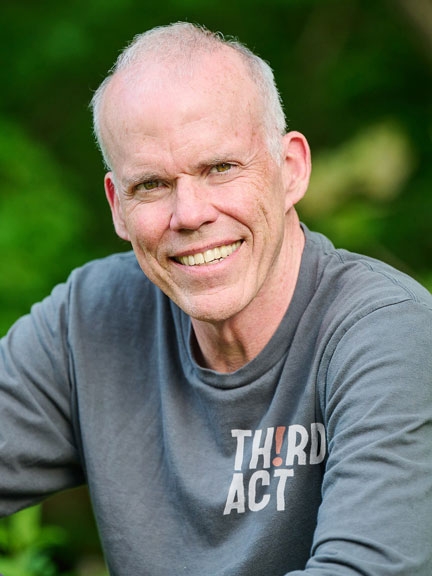Bill McKibben
Schumann Distinguished Scholar

- Office
- Franklin Env Ctr-Hillcrest 205
- Tel
- (802) 443-3489
- wmckibbe@middlebury.edu
Bill McKibben has been at Middlebury for a quarter century, now as Schumann Distinguished Scholar Environmental Studies.
He is a contributing writer to The New Yorker, and a founder of Third Act, which organizes people over the age of 60 to work on climate and racial justice. Alongside seven Middlebury students, he founded the first global grassroots climate campaign, 350.org.
In 2014 he was awarded the Right Livelihood Prize, sometimes called the ‘alternative Nobel,’ in the Swedish Parliament. He’s also won the Gandhi Peace Award, and honorary degrees from 20 colleges and universities.
He has published twenty books, including his first, The End of Nature, published in 1989, and his latest book is The Flag, the Cross, and the Station Wagon: A Graying American Looks Back at his Suburban Boyhood and Wonders What the Hell Happened.
Courses Taught
ENVS 0221
Early Liberations
Course Description
Early Liberations, Early Reactions
In this course we will examine America in the 1950s to 1970s. It was a place of remarkable ferment—the world your grandparents may have inhabited was shifting in profound ways that both energized and unsettled its politics and culture. Consider this: before Rachel Carson’s Silent Spring in 1962, ‘environmentalism’ was an obscure term; by the 1970’s there was Earth Day - 10% of the population was in the street protesting; by 1971 the Clean Air Act had passed Congress; by 1972 the reaction from business interests had begun, one of which came to fruition last year when the Supreme Court gutted that same law. The same dynamic played out across other spheres, from civil rights and women’s rights to economic policy. We will examine—mostly through the use of books and films of the period—this extraordinary moment in history and its lessons for the present.
Terms Taught
Requirements
ENVS 0500
Current
Upcoming
Independent Study
Course Description
Independent Study
In this course, students (non-seniors) carry out an independent research or creative project on a topic pertinent to the relationship between humans and the environment. The project, carried out under the supervision of a faculty member with related expertise who is appointed in or affiliated with the Environmental Studies Program, must involve a significant amount of independent research and analysis. The expectations and any associated final products will be defined in consultation with the faculty advisor. Students may enroll in ENVS 0500 no more than twice for a given project. (Approval only)
Terms Taught
ENVS 0700
Current
Upcoming
Senior Independent Study
Course Description
Senior Independent Study
In this course, seniors complete an independent research or creative project on a topic pertinent to the relationship between humans and the environment. During the term prior to enrolling in ENVS 0700, a student must discuss and agree upon a project topic with a faculty advisor who is appointed in or affiliated with the Environmental Studies Program and submit a brief project proposal to the Director of Environmental Studies for Approval. The expectations and any associated final products will be defined in consultation with the faculty advisor. Students may enroll in ENVS 0700 as a one-term independent study OR up to twice as part of a multi-term project, including as a lead-up to ENVS 0701 (ES Senior Thesis) or ENVS 0703 (ES Senior Integrated Thesis). (Senior standing; Approval only)
Terms Taught
